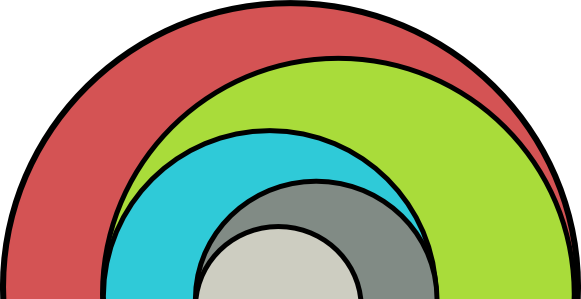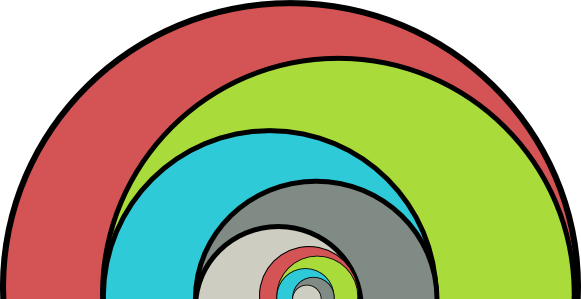A description of a doctrine without words is not a doctrine without words.
Over the last few days, the internet saw a layered explosion of conversation regarding Adria Richards, and a conversation which happened near her at PyCon 2013. To me, it looked like this:

The first circle represents the initial event. The second circle represents Adria’s public reaction. The third circle represents the reactions of HackerNews, Twitter, Playhaven, SendGrid, Anonymous, 4chan, and the internet at large to Adria’s reaction. The fourth circle represents the analysis of the internet’s reaction. And, for the sake of brevity, the last circle represents the analyses of this analysis. Some where in the middle of that rainbow pile there was some introspection. (Aside: I consider all of these articles worth reading.)
I’m the sort of person who likes to believe I’m above such flame wars, even before I know what they are about. And it was easy for me to nurture that unproductive belief in a little log cabin of silence. Fortunately, I was brought into a conversation in our office and knocked off my little throne of self-righteousness. Someone said something. Someone took offence. Someone else took offense on behalf of the offended (and, of course, themselves). It was discussed and the Original Someone took offense to the implications of that discussion. That's when I stepped in to "help out". Now our picture looks like this:

No need to thank me, friends. Glad I could help.
Keep in mind that this was a respectful and lucid discussion; everyone I work with is intelligent and thoughtful. But look at those layers: none of us could possibly share a context. It was difficult to nail down what we were even debating most of the time. Our own emotions? A specific incident? The reactions to an incident? The state of our industry? The incident as a microcosm of our industry at large? The state of gender roles and sexuality the world over? Some muddied mix? Anything we’d unravel seemed to hide another layer of experiential and emotional complexity which would quickly bury us again.
It wasn’t until hours after Tejas stepped in and suggested we all take the weekend to sleep on it that I realized I was making precisely the mistake I presumed everyone else was making. I believed I understood. I believed I had clarity. I believed if they would just listen to me I could show them the answer. Specifically, I believed I had the one piece of advice everyone else was missing: “Maybe you should take some time to reflect on how she might feel.” The irony still hurts.
I will continue to participate in this conversation. (And the related conversation about stopping rape, as it is ultimately more important.) Many of the links in this chain are ugly links. When a conversation is itself about our understanding of one another — and thus how we treat one another — those ugly event-links are (a) pointers to discussions we need to have and (b) proof the conversation is valuable, because we haven’t stopped hurting each other yet. The recursive nature of the conversation shouldn’t scare us but it might suggest we speak carefully.
But before I participate in the conversation, I’m peeling back all ten layers and taking stock: Who am I? A healthy, educated, middle-class, white man. I will never be a woman and I do not have the imaginative capacity to understand what a woman feels. I will never be another person and I do not have the imaginative capacity to understand what another human being feels. I can learn by listening with an open mind, even if I will never perfect my understanding. How beautifully this dovetails with my position of privilege! It’s the perfect time to shut up and take some of my own medicine: Reflect.
How do I really see other people? How do I really see myself? When do I judge you? When do I desire you? When do I reject you? Why? When my perceptions take life in my actions and my words do you feel threatened, comforted, intrigued, or confused? Why? Which link in the chain am I? Am I making things better?
…
.
Essay originally published on Hungry, Horny, Sleepy, Curious. (2013).